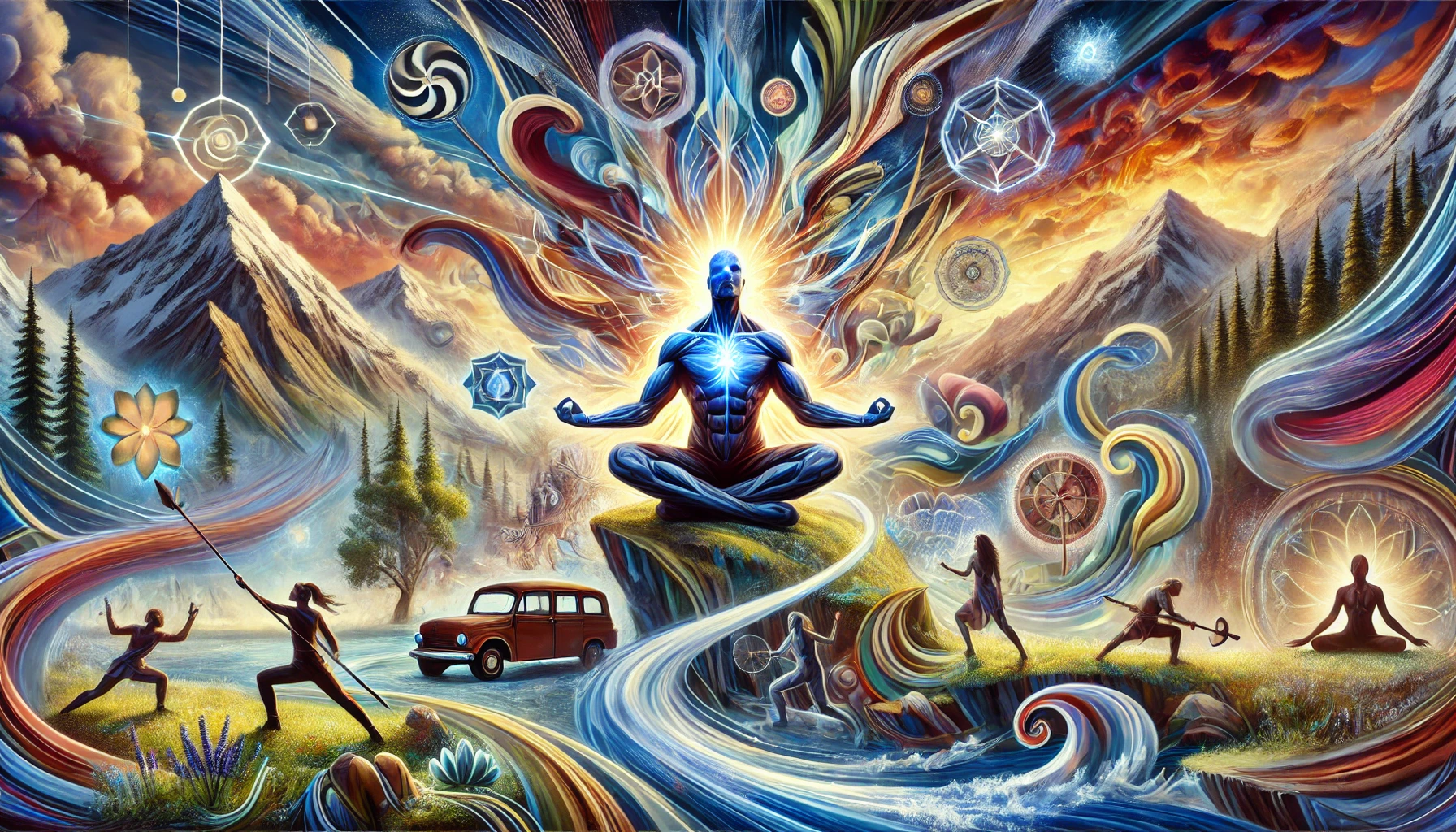
The Compelled Speech Dictates of Modern Movements: An Assault on Freedom
In an era where freedom of speech was once the cornerstone of democracy and self-expression, there is now a growing trend that undermines this essential right. The dictates of the politically correct new age movement, feminism, MeToo, woke, and transgender movements have fostered a culture of compelled speech that suppresses dissenting voices and stifles the free, playful, or clarifying expressions of individuals who do not align with the prevailing narratives.
The Nature of Compelled Speech
Compelled speech is a phenomenon where individuals are forced, either directly or indirectly, to express or refrain from expressing certain thoughts. This practice directly contradicts the principle of freedom of speech, which encompasses both the right to speak freely and the right to remain silent. As George Orwell astutely noted, “If liberty means anything at all, it means the right to tell people what they do not want to hear.”
Today’s cultural landscape is increasingly defined by rigid ideological boundaries. The politically correct agenda demands adherence to specific language and viewpoints, often punishing those who deviate. This trend manifests in how terms and pronouns must be used, how historical figures and events are discussed, and even the acceptable parameters for humor and satire.
The Assumptions and Projections
Movements like feminism, MeToo, and woke ideology are often built on assumptions and projections that can be inherently judgmental and repressive. Feminism, while striving for gender equality, sometimes paints all men as potential oppressors. The MeToo movement, although vital in addressing sexual misconduct, can at times lead to the presumption of guilt without due process. Woke culture often demands unyielding adherence to a particular set of moral and ethical standards, leaving no room for dissent or discussion.
These movements, in their pursuit of justice and equality, can become intolerant of any viewpoint that diverges from their own. They project a monolithic view of morality, which must be accepted without question. This lack of allowance for differing perspectives is a form of repression that runs counter to the very idea of freedom. The renowned philosopher John Stuart Mill warned of such dangers, stating, “He who knows only his own side of the case knows little of that.”
The Incongruity with Freedom
The essence of freedom lies in the ability to explore, challenge, and even offend. Historically, many significant social changes and advancements have come from challenging the status quo and offending the sensibilities of the time. The current climate, however, prioritizes the avoidance of offense over the exploration of truth.
This aversion to offense is paradoxical. On one hand, these movements advocate for the freedom to express one’s identity and experiences. On the other hand, they impose strict limitations on how others may express themselves. The result is a stifling of open dialogue and a suppression of diverse perspectives. As Noam Chomsky, a vocal critic of censorship, once said, “If we don’t believe in freedom of expression for people we despise, we don’t believe in it at all.”
The Cost of Being “Precious”
The notion of being “precious” – overly sensitive and easily offended – has come to dominate public discourse. This trend elevates the importance of not hurting feelings above the necessity of honest and robust discussion. It fosters an environment where people walk on eggshells, afraid to speak their minds for fear of being labeled as insensitive, bigoted, or worse.
In such an environment, the richness of human interaction and the potential for genuine understanding are lost. People are reduced to echo chambers of agreement, where the fear of offending prevents the free exchange of ideas. The true spirit of freedom – which includes the right to disagree, to offend, and to challenge – is sacrificed on the altar of political correctness. Christopher Hitchens, a champion of free speech, asserted, “The right of others to free expression is not a gift from the government or a favor from the state. It is the right that we possess by virtue of our humanity.”
George Carlin: The Comedian Philosopher
George Carlin, a legendary comedian known for his biting social commentary, often tackled the absurdity of political correctness. Carlin saw language as a vehicle for truth and believed that sanitizing speech was a form of control. “Political correctness is America’s newest form of intolerance, and it’s especially pernicious because it comes disguised as tolerance,” he remarked. Carlin’s irreverent humor exposed the hypocrisies of a society obsessed with avoiding offense, reminding us that discomfort is an essential part of growth and understanding.
Jordan Peterson: The Intellectual Maverick
Jordan Peterson, a clinical psychologist and professor, has become a prominent voice against compelled speech. Peterson famously opposed Canada’s Bill C-16, which mandated the use of gender-neutral pronouns, arguing that it infringed on free speech. He warned of the dangers of legislating language, stating, “The right to speak freely is the foundation stone for all other rights and freedoms.” Peterson’s stance highlights the importance of maintaining the integrity of free expression in the face of ideological coercion.
Osho: The Spiritual Rebel
Osho, a controversial spiritual teacher, often challenged societal norms and encouraged radical freedom. He believed that true freedom meant living authentically, without succumbing to external pressures. “Don’t choose anything. Be choicelessly aware and let life take its own course. That’s freedom,” Osho taught. His emphasis on individual liberation stands in stark contrast to the conformity demanded by today’s social movements. Osho’s teachings remind us that genuine freedom arises from within and cannot be dictated by external forces.
Comfort and Political Correctness: The Root of Oppression
The root of the current oppressive climate lies in the overvaluation of comfort and political correctness. By prioritizing comfort and avoiding offense, society has created an environment where intellectual growth and emotional resilience are stunted. As the ancient Stoic philosopher Epictetus noted, “Freedom is the only worthy goal in life. It is won by disregarding things that lie beyond our control.”
Political correctness, in its attempt to protect individuals from discomfort, ends up infantilizing them. It creates a culture where people are shielded from ideas that might challenge their beliefs or make them uncomfortable. This is antithetical to the development of a robust, free-thinking society. The spiritual teacher Jiddu Krishnamurti wisely said, “It is no measure of health to be well-adjusted to a profoundly sick society.”
Advaita Vedanta: The Perspective of Non-Duality
Advaita Vedanta, a school of Hindu philosophy, offers profound insights into the nature of reality and freedom. It teaches that the ultimate reality is non-dual, and the perceived distinctions between self and other, right and wrong, or true and false are illusory. According to Advaita Vedanta, true freedom is realized when one transcends these dualities and recognizes the unity of all existence.
From this perspective, the compelled speech and ideological rigidity of today’s social movements are fundamentally misguided. They reinforce the very dualities that Advaita Vedanta seeks to dissolve. By demanding adherence to specific viewpoints and language, these movements perpetuate a sense of separation and conflict. The sage Adi Shankaracharya, a key proponent of Advaita Vedanta, taught, “Brahman is the only truth, the world is an illusion, and there is ultimately no difference between Brahman and the individual self.” This teaching highlights the importance of seeing beyond superficial differences and embracing the underlying unity of all beings.
Advaita Vedanta emphasizes the importance of self-inquiry and inner freedom. It encourages individuals to question their assumptions and seek the truth within themselves. This process of self-realization is incompatible with the external imposition of beliefs and language. True freedom, according to Advaita Vedanta, is found in the recognition of one’s own divine nature and the liberation from external constraints.
Buddhism and Pure Ideologies
Buddhism, another ancient tradition, offers a similar critique of today’s social movements. The Buddha taught that attachment to views and opinions is a source of suffering. In the Kalama Sutta, the Buddha advised, “Do not believe in anything simply because you have heard it. Do not believe in anything simply because it is spoken and rumored by many. Do not believe in anything simply because it is found written in your religious books. Do not believe in anything merely on the authority of your teachers and elders. After observation and analysis, when you find that anything agrees with reason and is conducive to the good and benefit of one and all, then accept it and live up to it.”
This teaching encourages critical thinking and personal discernment, qualities that are often suppressed by the compelled speech and ideological conformity of today’s movements. Buddhism advocates for a middle way, a path of balance and moderation that avoids extremes. The polarized nature of contemporary social discourse, with its rigid adherence to ideological positions, stands in stark contrast to the Buddhist ideal of equanimity and open-mindedness.
Pure ideologies, whether they arise from religious, philosophical, or political traditions, emphasize the importance of love, compassion, and acceptance. The Dalai Lama, a prominent Buddhist leader, has often spoken about the need for a compassionate and inclusive approach to social issues. He has said, “Love and compassion are necessities, not luxuries. Without them, humanity cannot survive.” This message of universal love and acceptance is at odds with the divisive and judgmental nature of many modern social movements.
Innovators and Enlightened Masters: Voices of Freedom
To further understand the complexities of compelled speech and its impact on freedom, we must turn to the teachings of various innovators and enlightened masters who have challenged societal norms and advocated for true freedom.
Alan Watts: The Eastern-Western Philosopher
Alan Watts, a philosopher known for his ability to bridge Eastern and Western thought, emphasized the importance of individual freedom and self-expression. Watts believed that the suppression of genuine self-expression leads to a loss of authenticity and a disconnection from one’s true self. He taught, “Trying to define yourself is like trying to bite your own teeth.” Watts’ philosophy underscores the futility of imposed identities and the necessity of embracing one’s unique perspective.
Terence McKenna: The Psychedelic Visionary
Terence McKenna, a pioneering advocate for the exploration of consciousness, often spoke against the constraints of societal norms. McKenna championed the idea of cognitive liberty, the right to alter one’s consciousness through various means. He argued, “The cost of sanity in this society is a certain level of alienation.” McKenna’s radical views challenge us to question the status quo and explore the boundaries of human potential without fear of repression.
Friedrich Nietzsche: The Existential Rebel
Friedrich Nietzsche, a philosopher known for his critique of conventional morality, emphasized the importance of individual will and self-overcoming. Nietzsche’s concept of the “Übermensch” or “Overman” represents an individual who transcends societal norms and creates their own values. He famously declared, “He who fights with monsters should be careful lest he thereby become a monster. And if you gaze long enough into an abyss, the abyss will gaze back into you.” Nietzsche’s work serves as a warning against the dangers of dogmatic adherence to any ideology, advocating instead for personal freedom and self-empowerment.
Amma Mata Amritanandamayi Devi: The Hugging Saint
Amma, a spiritual leader known for her embrace of unconditional love and compassion, teaches that true freedom comes from the heart. Amma’s message is one of inclusion, acceptance, and universal love. She has said, “Love is our true essence. It is the source of all healing.” Amma’s teachings remind us that while freedom of expression is crucial, it must be balanced with empathy and respect for others.
The Path Forward
To reclaim the true essence of freedom, society must embrace the idea that free expression includes the right to offend. It is only through open and unrestrained dialogue that we can address and resolve the complex issues facing us. This does not mean endorsing hate speech or incitement to violence, but rather recognizing that robust debate and differing opinions are crucial for a healthy, functioning society.
We must foster a culture where individuals are encouraged to express themselves authentically, without fear of retribution. This involves not only protecting speech but also cultivating resilience in the face of offensive or challenging ideas. The ability to engage with and respond to differing viewpoints is a mark of maturity and strength, not weakness.
The Stew of Politically Correct Baloney: Architects of Conformity
To understand how we have arrived at this point of ideological conformity and compelled speech, we must examine the figures and movements that have steered us into this stew of politically correct baloney. Many well-meaning but misguided individuals and groups have contributed to this climate of intolerance and repression.
The Frankfurt School: The Origin of Critical Theory
The Frankfurt School, a group of Marxist scholars in the mid-20th century, developed critical theory, which has significantly influenced contemporary social movements. Figures like Herbert Marcuse and Theodor Adorno criticized traditional Western values and sought to deconstruct societal norms. Marcuse’s concept of “repressive tolerance” argued that true tolerance required the suppression of intolerant ideas. While their intentions were to promote social justice, their ideas have often been used to justify censorship and compelled speech.
Postmodernists: Deconstructing Truth
Postmodern philosophers like Michel Foucault and Jacques Derrida challenged the notion of objective truth and emphasized the power dynamics inherent in language and knowledge. Their work laid the groundwork for contemporary identity politics and the idea that language can be a tool of oppression. This perspective has been instrumental in shaping the ideological rigidity and language policing seen in today’s social movements.
Social Media: The Amplifier of Outrage
The rise of social media has also played a crucial role in the proliferation of politically correct culture. Platforms like Twitter and Facebook enable the rapid spread of outrage and allow for the public shaming of individuals who deviate from accepted norms. The mob mentality fostered by social media exacerbates the fear of speaking out and reinforces conformity. This digital landscape has created an environment where nuance and thoughtful discussion are often sacrificed for the sake of virality and instant judgment.
Addendum: The Cost of Stifling the Truly Self-Expressed
When the truly self-expressed individuals in the world are stifled, judged, and alienated, the cost to society is immense. These individuals, often the visionaries, the rebels, and the truth-tellers, hold the potential to catalyze profound social, cultural, and intellectual advancements. Their suppression not only hinders personal growth but also stymies societal progress.
The Role of Self-Expressed Individuals
Self-expressed individuals are those who see beyond the veils of societal norms and dare to articulate their unique perspectives. They are clear on what reality is and what it is not, often providing a mirror to society’s contradictions and hypocrisies. These individuals are not afraid to challenge the status quo, provoke thought, and incite change.
George Bernard Shaw captured the essence of such individuals when he wrote, “The reasonable man adapts himself to the world: the unreasonable one persists in trying to adapt the world to himself. Therefore all progress depends on the unreasonable man.”
The Impact of Suppression
- Intellectual Stagnation: When society suppresses free-thinkers and truth-tellers, it risks intellectual stagnation. Innovative ideas and critical thinking are essential for progress. Suppressing dissent stifles creativity and leads to a homogenization of thought, where only safe and conforming ideas are allowed to flourish.
- Cultural Monotony: Diverse expressions of art, culture, and literature are vital for a vibrant society. The suppression of unique voices leads to cultural monotony, where art loses its ability to challenge, inspire, and transform. As the poet Allen Ginsberg warned, “Whoever controls the media, the images, controls the culture.”
- Loss of Authenticity: Encouraging conformity over authenticity creates a society of individuals who are disconnected from their true selves. This disconnection leads to widespread feelings of dissatisfaction, alienation, and mental health issues. Carl Jung noted, “The privilege of a lifetime is to become who you truly are.” When this privilege is denied, the collective psyche suffers.
Voices of the Wild and Free
Hunter S. Thompson: The Gonzo Journalist
Hunter S. Thompson, the founder of Gonzo journalism, lived life on his own terms and documented the absurdities of American culture. He believed in the power of individual expression and railed against conformity. “Freedom is something that dies unless it’s used,” Thompson declared, emphasizing the necessity of exercising one’s voice and freedom relentlessly.
Ken Kesey: The Merry Prankster
Ken Kesey, author and countercultural figure, led the Merry Pranksters in the 1960s, a group dedicated to exploring and expanding human consciousness. Kesey warned against the dangers of societal repression: “You can’t really be strong until you see a funny side to things.” Kesey’s life was a testament to the importance of humor, irreverence, and the breaking of societal norms.
Patti Smith: The Punk Poet
Patti Smith, the punk rock poet, has always championed the power of the individual voice. In her memoir, Just Kids, she wrote, “The artist seeks contact with his intuitive sense of the gods, but in order to create his work, he cannot stay in this ecstatic state. He must return to the state of being a human being.” Smith’s work and life emphasize the balance between divine inspiration and human experience, a balance that is disrupted when true self-expression is stifled.
The Need for Authentic Voices
Authentic voices challenge our perceptions, push boundaries, and force us to confront uncomfortable truths. They are the catalysts for change and the torchbearers of progress. When these voices are silenced, society loses its direction and vitality.
As John F. Kennedy famously said, “Without debate, without criticism, no administration and no country can succeed—and no republic can survive.” This principle extends beyond politics into all realms of society. Debate and criticism, often led by the self-expressed, are the lifeblood of a thriving community.
A Call to Action
In a world where the suppression of authentic voices is increasingly prevalent, it is imperative to protect and amplify these voices. Society must recognize the value of dissent, the necessity of diverse perspectives, and the importance of maintaining an open dialogue.
By fostering an environment that celebrates rather than suppresses self-expression, we can create a more vibrant, dynamic, and progressive society. As Ralph Waldo Emerson urged, “Do not go where the path may lead, go instead where there is no path and leave a trail.” We must encourage individuals to forge their own paths and celebrate the trails they blaze.
In conclusion, the cost of stifling self-expressed individuals is too great to bear. Their suppression leads to intellectual stagnation, cultural monotony, and a loss of authenticity. By embracing the wisdom of wild and free innovators, and protecting the right to free expression, we can ensure a future that is rich in diversity, creativity, and genuine progress. Let us awaken to the importance of these voices and take action to safeguard the freedom that allows them to thrive.
Conclusion
The compelled speech dictates of the politically correct new age movement, feminism, MeToo, woke, and transgender movements are fundamentally at odds with the nature of freedom. By prioritizing the avoidance of offense over the free expression of ideas, these movements inadvertently foster judgment, non-allowance, and repression. To reclaim our freedom, we must champion the right to offend and embrace the robust, open dialogue that is essential for a truly free society.
What the fuck is going on in this world? It’s time to restore balance and ensure that the preciousness of a few does not supersede the fundamental rights of many. We must heed the warnings of visionaries like Orwell, Mill, Chomsky, Hitchens, Carlin, Peterson, Osho, Watts, McKenna, Nietzsche, Amma, Epictetus, and Krishnamurti to navigate the delicate balance between sensitivity and freedom and to revive the essence of a truly liberated society.
Let us be inspired by the wisdom of Advaita Vedanta and Buddhism, which remind us of the importance of inner freedom and the dangers of attachment to rigid views. Let us challenge the architects of ideological conformity and resist the allure of politically correct baloney. It is time to awaken, to speak our truth, and to reclaim the freedom that is our birthright. The future of our society depends on our courage to stand up for the principles of free expression, open dialogue, and authentic living.
Get The Shankara Oracle and dramatically improve your perspective, relationships, authentic Self, and life.














